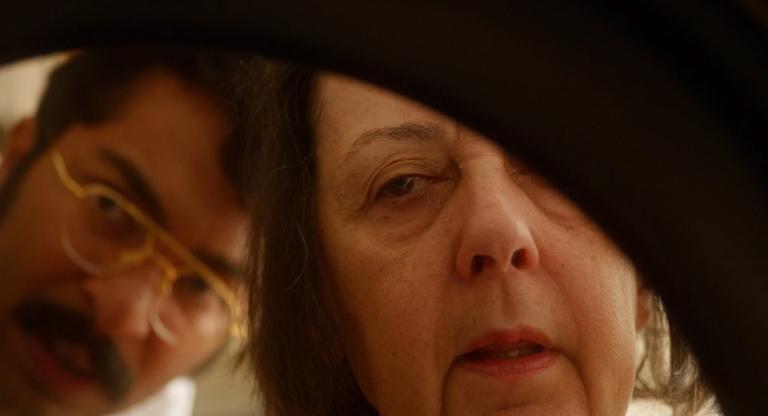Directed by Mike Figgis, Leaving Las Vegas (1995) follows one determined alcoholic’s quest to drink himself to death in the desert. Ben Sanderson, played by an occasionally overwrought but nonetheless extremely convincing Nicolas Cage, is on a bender. Through a quick series of alcohol-fueled encounters, the spiral of Ben’s life is rendered apparent in the first ten minutes. Ben interrupts an ex-colleague’s dinner to ask for money, and it’s clear this isn’t the first time. A night of bar-hopping ends with Ben passing out in front of his open refrigerator. The next morning, he is unable to sign the back of a check because his hands shake too badly—though are soon steadied by an early-morning drink. He loses his job, and his colleagues and boss appear sad and pitying, rather than angry. The time of anger has passed. A severance check in hand, Ben destroys all his belongings, burning photos of his ex-wife and child, and heads for, where else, Las Vegas. On the soundtrack, Sting croons “Have you ever had the feeling that the world’s gone and left you behind?” The movie just started, but for Ben it's already over. It’s been over.
Sera (Elizabeth Shu)—from whose perspective the narrative mostly unfolds—is not necessarily at the end of her line, but things aren’t looking great either. She is tasked with a familiar trope: Las Vegas sex worker with an evil pimp and a heart of gold. She says times are bad but not as bad as they were. The evil pimp in question is played by—jump scare for Room with a View (1985) fans—Julian Sands. He’s abusive, controlling, in trouble with the Russian mob, and ultimately superfluous to the story.
A drunken Ben (a redundant detail; he is drunk the entire movie) nearly plows down Sera with his car, and a strange connection between the two is born. She’s desperately lonely; he’s a nice alcoholic with a crush. Here at the end of the world, amongst the casinos and violence and glitz and despair, Ben and Sera find something rare: empathy, trust, and honesty with one another. As feelings develop, Ben tells Sera she can never, ever ask him to stop drinking. She says she understands. She buys him a flask as a present. He tears up (I tear up). What is love anyway, if not the ability to accept and see one another as we are? Figgis’s sad, dreamy score complements the hazy neon lights of the strip and the glimmer of whiskey on bare skin at sunset. It’s almost romantic.
But of course this is a tragedy as well as a romance, propelled by the horrors of watching a loved one drink themselves to death. Cage and Shue deliver impressive, dedicated performances, and Figgis narrowly avoids letting the film fall into anything too mawkish or exploitative. Like many great tragedies, we know the outcome well in advance, but we can’t help but hope for an alternative. Leaving Las Vegas won’t make you feel good, but who wants to watch a feel-good movie these days, anyway?
Leaving Las Vegas screens at Metrograph this afternoon and tomorrow, December 16 and 17, and on December 20, on 35mm as part of the series “Women Dressing Women: From Runway to Screen.”



